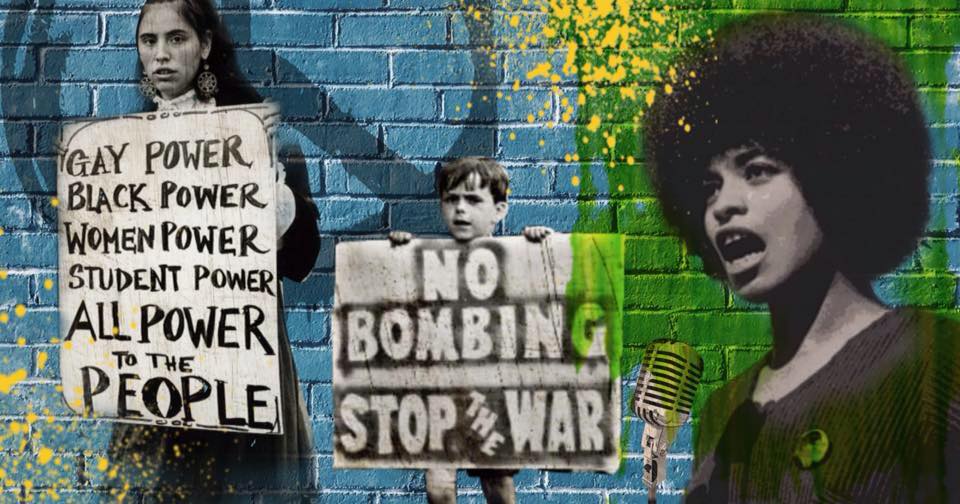The (re)Making of a Movement: New Perspectives on the 1960s Counterculture
Abstract submission: humber.ca/liberalarts-ifoa/call-proposals
Contact: daniel.hambly@humber.ca or jennifer.marotta@humber.ca
Submission deadline: May 30, 2019
Conference date: November 2-3, 2019
Location: Harbourfront Centre, 235 Queens Quay West, Toronto
Host: Faculty of Liberal Arts and Sciences and Innovative Learning (FLA), Humber College and the Toronto International Festival of Authors (TIFA)
Keynote speaker: Angela Davis – activist, author, educator, and scholar
It’s been 50 years since 400,000 people descended on Bethel, New York, for an event that became one of the most important cultural touchstones for a generation: Woodstock. As participants in an amorphous social movement the Woodstock Generation came to be defined in opposition to previous generations. Despite growing up in an era of incredible privilege, widespread government social programs, post-war housing and education, and increasing affluence, they rejected, or attempted to redefine traditional values. In theory, supporters of the counterculture rejected individualism, competition, and capitalism. Rejection of monogamy and the traditional nuclear family gave way to a communal ideal—disavowing individualism and private property in favour of shared food, work, sex. As historian Michael Doyle points out, the myth of Woodstock holds that “in a time of military conflict abroad, racial and ethnic strife at home, when a deep social division known as the ‘generation gap’ separated parents from children, nearly half a million young people removed themselves from proximity to these conflicts and went ‘back to the garden’ to try to ‘set their souls free’.” As such, Woodstock carries a certain symbolic weight for participants in the 1960s and 1970s counterculture movement and for anyone who looks back on the past fifty years with a critical eye.
The counterculture movement encompassed: the civil rights movement, free speech, the new left, anti-war, anti-nuclear, feminism, free school movement, drug culture, environmentalism, student activism, producerism, gay liberation, the sexual revolution, and the rise of hippies to innovations in fashion, music, film, and literature. The American poet John Perry Barlow once said: “I started out as a teenage beatnik and then became a hippie and then became a cyberpunk. And now I’m still a member of the counterculture, but I don’t know what to call that.” How have the various movements within the counterculture evolved over the past 50 years? What did hippies become? Who was the sexual revolution scripted for? How did the civil rights movement evolve? How did a generation that “dropped out” re-engage? How was this fringe culture appropriated by marketers? How challenging was it to live an ideal especially in light of the Cold War and rise of Reaganism?
Our conference committee welcomes individual presentation proposals of 300 words, and panel proposals (three people max) of 900 words, based on any of the above themes. This will be the sixth annual interdisciplinary conference held by Humber College’s Faculty of Liberal Arts and Sciences and Innovative Learning (FLA) of Toronto in association with the Toronto International Festival of Authors (TIFA), one of the most celebrated literary festivals in the world. It is located at the Harbourfront Centre, one of downtown Toronto’s major cultural and artistic venues.

